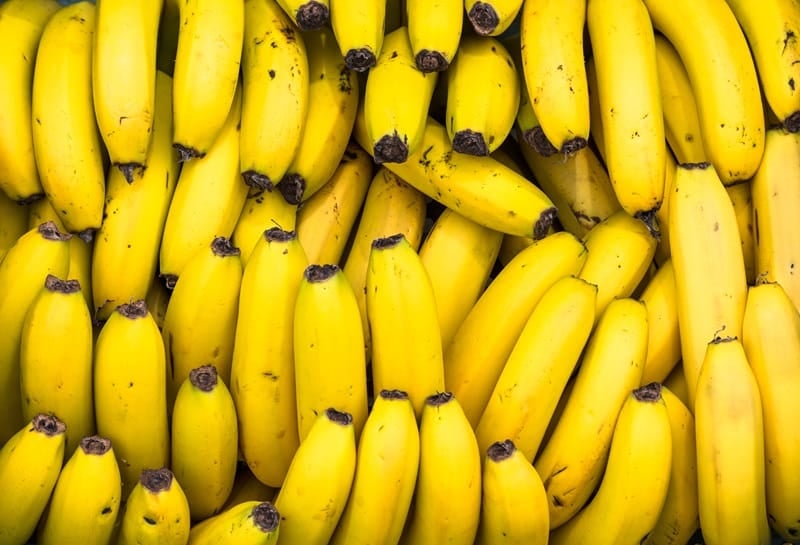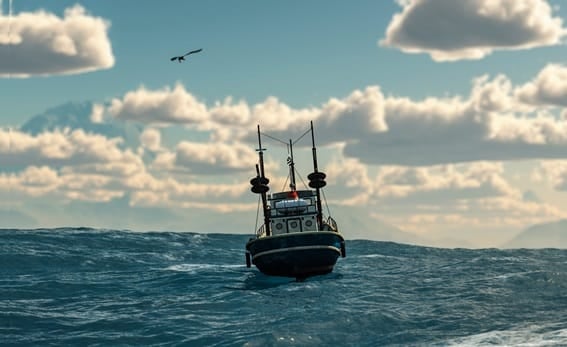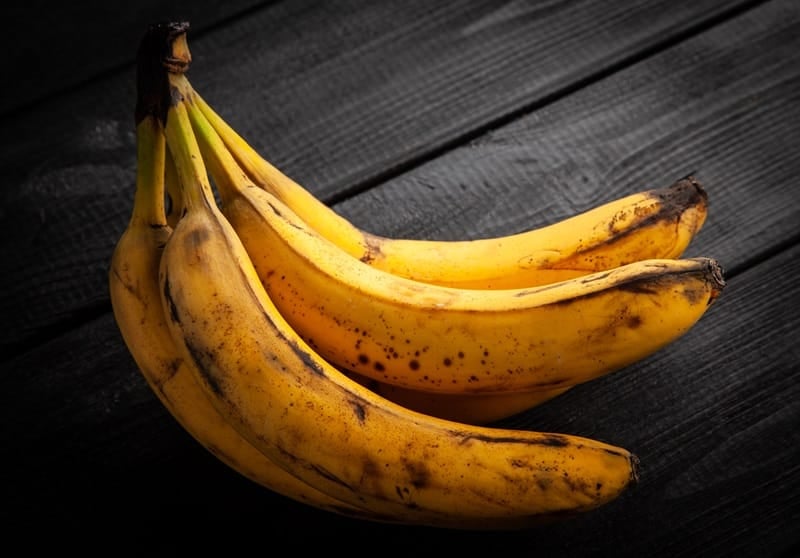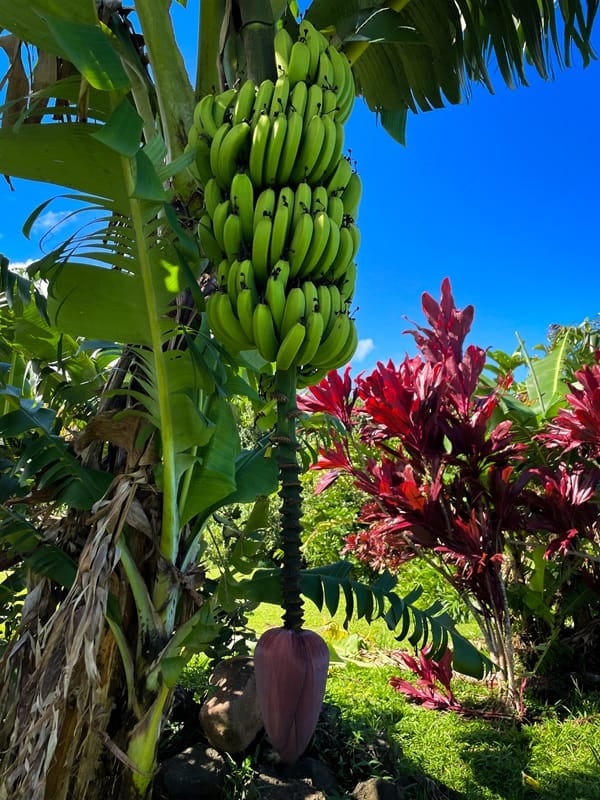Aloha! Ever heard the old sailor’s saying, “No bananas on board”? This quirky maritime superstition has been haunting seafarers for centuries, particularly those who cast their lines in search of the ocean’s bounty. But where did this peculiar belief originate, and does it hold any water today? Let’s dive into the murky depths of maritime lore and uncover the truth behind the banana boat curse.
Historical Roots of Why You Don’t Bring Bananas on a Boat
The origins of this superstition are as slippery as a banana peel on a wet deck. Some trace it back to the 1700s when wooden ships sailed the Caribbean, hauling bananas to Europe. These voyages were fraught with peril – storms, shipwrecks, crew members falling ill, and the dreaded spoilage of precious cargo. It’s no wonder that bananas, often the only fruit left floating amidst the wreckage, became associated with misfortune.
Maui Snorkeling Tours
Ready to explore Maui’s underwater paradise? Dive into an unforgettable adventure with us! 🐠 Book your tour now and discover the magic beneath the waves. 🌊
Practical Concerns: Ripening, Spoiling, and Pests
Beyond superstition, there are practical reasons why bananas might have been viewed as problematic on long sea voyages.
• Ethylene (Ethene) Gas: Picture hundreds of bananas, freshly picked and destined for European markets, crammed into the same cargo hold as the ship’s precious rations. Back then, sailors didn’t understand that bananas emit ethene, a natural ripening agent. This gas, while harmless on its own, wreaked havoc on other fruits and vegetables, accelerating their decay and turning the hold into a putrid mess. In the days before refrigeration, this could spell disaster for a ship’s food stores.
The consequences were dire. Voyages often took longer than expected due to storms, rough seas, or navigational errors. As time ticked by, the ethylene-induced spoilage intensified, leaving the crew with dwindling or even nonexistent food supplies. Starvation, scurvy, and other diseases became constant threats, casting a dark shadow over the once-promising banana trade.
But why do bananas have this sinister effect on other produce? Ethene, formerly known as ethylene, is a plant hormone that triggers ripening by breaking down cell walls and converting starches to sugars. This process also diminishes natural acids, making fruits softer and sweeter. While this is desirable for a ripe banana, it’s a recipe for disaster when it comes to storing other produce.
This historical context sheds light on why bananas were viewed with such apprehension by sailors. The combination of superstition and practical concerns created a potent mix that led to the enduring belief that bananas are bad luck at sea.
• Venomous Stowaways: Tropical spiders and snakes, native to the regions where bananas were grown, would often find their way into the shipments, seeking shelter and a free ride to new lands.
These venomous hitchhikers, including species like the Brazilian wandering spider and the fer-de-lance snake, posed a serious threat to unsuspecting sailors. Imagine the terror of reaching for a banana only to find a deadly spider lurking beneath its leaves or a venomous snake coiled amongst the bunches. Bites were a constant risk, adding another layer of danger to the already dangerous sea voyages.
The fear of venomous stowaways also had practical implications. Sailors were forced to exercise extreme caution when handling banana cargoes, slowing down the unloading process and adding to the overall risk of the voyage. This, in turn, contributed to the economic challenges of the banana trade, as ships had to factor in the potential for delays and losses due to these unexpected dangers.
While modern shipping practices have largely mitigated the risk of venomous stowaways, the historical association between bananas and dangerous creatures remains a chilling reminder of the risks faced by early seafarers. The banana boat curse, it seems, was not merely a figment of superstitious imagination but a reflection of the very real dangers lurking within those seemingly innocent bunches of fruit.
The Fishing Connection – No Bananas on Board
Fishermen, renowned for their rich tapestry of superstitions, played a significant role in perpetuating the banana boat curse. This close-knit community, reliant on the unpredictable whims of the sea, often attributed their successes and failures to luck, omens, and even seemingly harmless objects like bananas.
Some believed the scent of bananas repelled fish or attracted sharks, while others blamed the fruit for mechanical problems or even the loss of loved ones at sea. While there is no scientific evidence to support these claims, the belief that bananas brought bad luck became deeply ingrained in fishing folklore. This superstition was passed down through generations, becoming a part of the collective consciousness of fishing communities worldwide.
One possible explanation for this belief lies in the practical concerns associated with bananas. The slippery nature of banana peels could create hazardous conditions on a boat’s deck, especially when wet. A slip and fall could lead to injuries, equipment damage, or even a person going overboard, all of which could be blamed on the “cursed” fruit.
While the banana boat curse may seem like an irrational superstition, it reflects the deep-rooted beliefs and anxieties of fishermen throughout history. The sea is a powerful and unpredictable force, and those who rely on it for their livelihood often seek ways to control or appease its whims. In this context, the banana became a scapegoat for misfortunes, a tangible object upon which to project fears and anxieties.
Today, while many fishermen may scoff at the banana boat curse, it remains a fascinating part of maritime folklore. It serves as a reminder of the challenges faced by early seafarers and the power of superstition to shape beliefs and behaviors. Whether you believe in the curse or not, there’s no denying that bananas have left their mark on the history of seafaring.
Modern-Day Persistence and Logical Explanations
Fast forward to the 21st century, and this maritime superstition still lingers. You might find banana-wielding anglers being met with disapproving stares on some fishing charters. But is there any logic to this seemingly irrational fear?
The answer lies in the deep-rooted traditions and superstitions that have been passed down through generations of seafarers. For many, the banana boat curse is more than just a silly superstition; it’s a cultural touchstone, a reminder of the challenges faced by their ancestors and the respect they held for the unpredictable forces of the sea.
While the curse itself lacks scientific basis, there are some practical concerns that could explain the historical aversion to bananas on boats. As we’ve discussed, ethylene gas released by bananas can indeed accelerate the spoilage of other fruits and vegetables. This could have been a major issue in the past when refrigeration was not available.
Furthermore, banana peels are notoriously slippery, especially when wet. A careless discard on a boat’s deck could easily lead to accidents and injuries. Additionally, bananas can attract insects, which could be a nuisance in the confined spaces of a vessel.
However, these practical concerns are easily addressed with modern solutions. Proper storage techniques, such as separating bananas from other produce and using airtight containers, can mitigate the effects of ethylene gas. Careful disposal of peels and vigilant pest control can prevent accidents and infestations
To Banana or Not to Banana with Maui Snorkeling?
Planning to join us aboard the Lani Kai II for a Maui Snorkeling Tour? While we’re all about fun in the sun, we have a friendly request: please leave the bananas on shore! 🍌🚫 Don’t worry, we’ve got you covered with delicious snacks and food options on board to keep you energized for your underwater explorations. So, swap those bananas for some other tasty treats, and let’s make some unforgettable memories together in the crystal-clear waters of Maui!
Beyond Bananas: Other Maritime Superstitions
The banana boat curse is just one of many superstitions that have shaped seafaring culture. From whistling up a storm to the ominous sighting of a black cat, the high seas are crawling with tales of good and bad luck. These superstitions offer a glimpse into the rich history and folklore of seafaring life.
So, next time you see a banana on a boat, remember its intriguing history and the superstitions that surround it. Whether you believe in the curse or not, there’s no denying that bananas have a unique place in maritime lore!
Snorkel Maui
Eager to explore Maui’s underwater paradise? Dive into an unforgettable snorkeling adventure with Maui Snorkeling and explore Molokini Crater, Turtle Town, and Coral Gardens! 🐠





